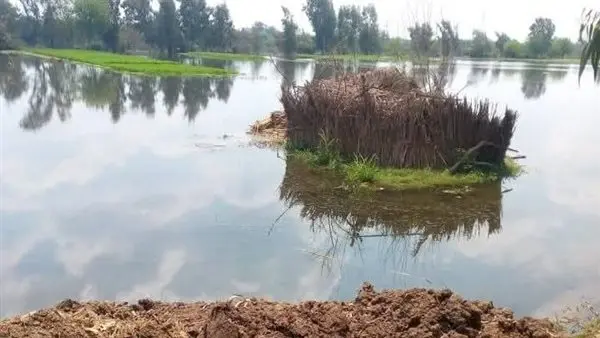Recent Nile flooding in Egypt renews concerns over Ethiopian dam’s impact

Recent flooding of agricultural lands in Egypt has reignited debate over the Grand Ethiopian Renaissance Dam (GERD) and its implications for Egypt’s water management policies amid escalating regional water security concerns.
The flooding, which affected approximately 648 acres of fertile farmland in northern Egypt’s Menoufia Governorate, has prompted widespread farmer protests about crop damage whilst officials struggle to implement effective water discharge planning.
“My entire season’s harvest is underwater,” said Mohamed Hassan, a farmer from Menoufia who lost his vegetable crops. “This has never happened this time of year before.”
Water ministry points to upstream uncertainty
Egypt’s Ministry of Water Resources and Irrigation has attributed the crisis to “unprecedented uncertainty” regarding the timing and quantities of water flowing into Lake Nasser, the country’s main water reservoir with a storage capacity of 169 billion cubic metres.
“Whilst seasonal fluctuations are normal, what we’re experiencing now is highly unusual and disruptive to our agricultural planning,” said a senior ministry spokesperson, citing climate change, increased water demand, and severely disrupted discharge schedules as converging factors.
Dam at the centre of regional water dispute
The Grand Ethiopian Renaissance Dam, located on the Blue Nile River in Ethiopia’s Benishangul-Gumuz region, stands at the heart of the controversy. As Africa’s largest hydroelectric power project, the 145-metre-tall structure stretches 1.8 kilometres and cost an estimated $4.8 billion to build since breaking ground in 2011.
Ethiopia considers the dam vital to its economic future, with potential to generate over 5,000 megawatts of electricity and transform the country into a regional power exporter. The reservoir created by the dam has a capacity of 74 billion cubic metres—nearly 1.5 times Egypt’s annual Nile water allocation.
Water resource experts point to a lack of coordination with Ethiopia regarding GERD operations as the primary cause of Egypt’s current flooding issues.
“The timing of these water releases is completely out of sync with our traditional water management calendar,” explained Dr Abbas Sharaky, Professor of Water Resources at Cairo University. “Cairo essentially lacks accurate information about Ethiopia’s water release plans, leaving us unable to prepare properly for incoming water volumes.”
Long-standing tensions over Nile waters
The dispute between Cairo and Addis Ababa has intensified over the past decade, with diplomatic relations strained as both sides stake claims to vital water resources. Despite multiple rounds of negotiations mediated by the African Union and other international bodies, the countries have failed to reach a comprehensive agreement on the dam’s operation.
Egypt, which relies on the Nile for 98% of its water needs and receives a fixed annual share of 55.5 billion cubic metres under historical agreements, now falls below the global water poverty line with only 500 cubic metres available per person annually.
Current crisis heightens concerns
Ethiopian Prime Minister Abiy Ahmed announced in March that the GERD filling process was complete, with plans to inaugurate the dam in September. This has intensified Egyptian concerns about potential sudden water releases, especially as power generation turbines remain partially installed.
“The unilateral operation of the dam is directly contributing to agricultural flooding and threatens our long-term water security,” said Nasr El-Din Allam, former Egyptian Irrigation Minister, in an interview with state media. “Without a binding legal agreement regulating the dam’s operation, we risk further agricultural damage and potential water shortages during dry seasons.”
Egypt and Sudan continue to advocate for a formal agreement that would establish rules for filling and operating the dam whilst protecting the interests of all countries that share the Nile’s waters, a position that has received support from international water management experts.
As farmers in Menoufia salvage what remains of their crops, the flooding serves as a stark reminder of the complex geopolitical challenges surrounding water resources in one of the world’s most water-stressed regions.
How to submit an Op-Ed: Libyan Express accepts opinion articles on a wide range of topics. Submissions may be sent to oped@libyanexpress.com. Please include ‘Op-Ed’ in the subject line.
- Libya settles Arab League dues - April 24, 2025
- Economy Ministry: No new import taxes planned - April 24, 2025
- Tetteh: Libya’s institutions “past their sell-by date” - April 23, 2025


